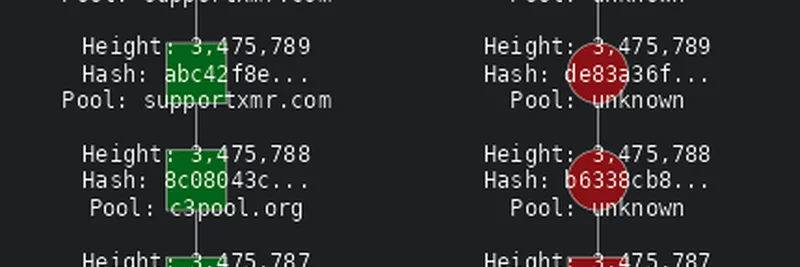In the fast-paced world of cryptocurrency, where innovation meets volatility, a recent event has the community buzzing. Bitcoin developer Peter Todd took to X (formerly Twitter) to spotlight what appears to be a bold move by Qubic, a lesser-known project, against Monero, one of the top privacy-focused coins. If you're new to this, Monero (XMR) is a cryptocurrency that emphasizes anonymity, using proof-of-work (PoW) consensus like Bitcoin, but with features that make transactions untraceable.
Todd's tweet quotes a post claiming Qubic has reached over 51% of Monero's mining power, potentially setting the stage for a 51% attack. For the uninitiated, a 51% attack happens when a single entity controls more than half of a network's hashrate—the total computational power securing the blockchain. This control allows them to rewrite transaction history, potentially double-spend coins, or orphan (invalidate) blocks mined by others.
The quoted post from @CaffeinatedUser details how Qubic is incentivizing miners with rewards up to three times higher than mining Monero directly. They split profits: half goes to miners, and the other half is used to buy and burn QUBIC tokens, aiming to boost its value. If successful, Qubic could mine all Monero blocks, raking in about 432 XMR daily (worth over $118,000 at current prices), with half fueling their token burn mechanism. This isn't just mining—it's a strategic takeover, turning a $300 million market cap project into the gatekeeper of a $6 billion coin.
But the plot thickens. Todd points out a "big reorg" in Monero's blockchain, likely tied to this. A reorg, short for reorganization, occurs when a longer chain of blocks replaces the current one, often due to competing miners. In this case, Monero reportedly suffered its deepest reorg ever, as shared by @monerobull. Unknown pools—possibly linked to Qubic—overwrote several blocks, shifting control and raising alarms.
Skeptics are pushing back. One reply from @mjwymbs calls it "unsubstantiated FUD" (fear, uncertainty, doubt), arguing Qubic's share is inflated and under 20% in recent blocks. They suggest it's hype to pump Qubic's price, which some label a "ponzi coin" due to its aggressive marketing and AI claims. Meanwhile, @NotIshanSingh laments a top crypto like Monero being targeted by such a project, highlighting vulnerabilities in PoW systems.
This saga underscores key risks in decentralized mining. Monero's RandomX algorithm is designed to be ASIC-resistant, favoring CPU mining to keep it accessible. But if Qubic's model lures enough hashpower, it could centralize control, undermining Monero's ethos. @monerobull urges users to mine via tools like Gupax to counter the threat, noting Qubic's upcoming halving might end the profitability edge.
For meme token enthusiasts, Qubic fits the bill with its hype-driven mechanics—burning tokens, promises of decentralized AI, and now this audacious play. It's a reminder that in the meme coin space, where virality rules, even established players like Monero aren't immune. Could this inspire similar tactics elsewhere? Projects like Kaspa or other PoW memes might watch closely.
As the dust settles, the crypto community is divided: Is this innovation or exploitation? Monero's resilience will be tested, but events like this push the industry toward better security. Stay tuned—blockchain drama never sleeps.
Key Takeaways
- 51% Attack Basics: Controlling majority hashpower lets attackers manipulate the chain, a rare but devastating event.
- Qubic's Strategy: Higher rewards and token burns aim to dominate Monero mining for profit and hype.
- Monero's Response: Community mining calls and upcoming changes could thwart the attempt.
- Broader Implications: Highlights PoW centralization risks, especially for smaller or meme-ish projects eyeing big targets.
If you're diving into meme tokens or privacy coins, keep an eye on Monero's official site and Qubic's developments. What do you think—game-changer or gimmick?




